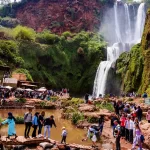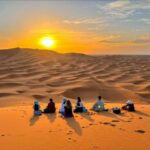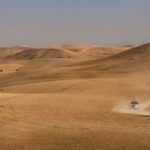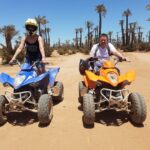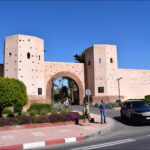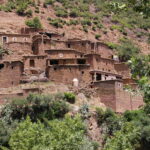Experience Morocco: Comprehensive Travel Guide & Itinerary
Morocco Travel Guide – Titrit Morocco Tours
About Morocco
Morocco, officially known as the Kingdom of Morocco, is located in North Africa. It is bordered by the Atlantic Ocean and the Mediterranean Sea to the west and north, Algeria to the east, and Western Sahara to the south. Its capital is Rabat, and the largest city is Casablanca. Morocco is known for its diverse geography, ranging from coastal beaches to the Sahara Desert, and the Atlas and Rif Mountains.
Country Demographics
Morocco has a population of approximately 36 million people. The majority are of Arab-Berber descent, with a significant Berber minority. The official languages are Arabic and Berber, with French widely spoken due to the country’s colonial history. Islam is the dominant religion, with most Moroccans being Sunni Muslims.
Getting to Morocco
- By Air: Major international airports include Mohammed V International Airport in Casablanca, Menara Airport in Marrakech, and Fès–Saïs Airport in Fes. There are direct flights from major European cities, North America, and the Middle East.
- By Sea: Regular ferries operate between Spain and Morocco, with ports in Tangier, Nador, and Al Hoceima. Ferries also connect Morocco with Gibraltar and Italy.
- By Land: Morocco shares land borders with Algeria (currently closed) and Western Sahara. Overland travel from Mauritania is possible through the Western Sahara.
Money
- Currency: Moroccan Dirham (MAD). One dirham is subdivided into 100 centimes.
- ATMs: Widely available in cities and towns, with most accepting international credit and debit cards.
- Credit Cards: Accepted in hotels, restaurants, and larger shops, but cash is preferred in smaller establishments and rural areas.
- Currency Exchange: Available at airports, banks, exchange bureaus, and some hotels. It’s advisable to exchange money at authorized establishments.
Visas
Many nationalities, including EU, US, and Canadian citizens, can enter Morocco visa-free for up to 90 days. For longer stays, or for nationals of countries requiring a visa, check with your local Moroccan consulate for specific requirements. Ensure your passport is valid for at least six months from your date of entry.
Traveling around Morocco
- By Train: ONCF operates an extensive and efficient rail network connecting major cities like Casablanca, Marrakech, Rabat, and Fes. The Al Boraq high-speed train connects Tangier to Casablanca in just over two hours.
- By Bus: CTM and Supratours offer reliable long-distance bus services. Smaller companies and local buses provide services to more remote areas.
- By Car: Car rental is available, but driving can be challenging in cities due to traffic and road conditions. Renting a 4×4 is recommended for desert trips.
- Taxis: Petit taxis (within cities) and grand taxis (between cities) are common. Petit taxis have meters, while grand taxi fares should be negotiated in advance.
Dress Code
Modest dress is recommended, especially in rural areas and religious sites. Women should cover their shoulders and knees. In tourist areas and larger cities, casual attire is more acceptable, but it’s respectful to dress conservatively.
Tipping
Tipping is customary in Morocco and appreciated for good service:
- Restaurants: 10-15% of the bill.
- Hotels: Small tips for porters, housekeeping, and other staff.
- Guides: 100-200 MAD per day.
- Taxis: Rounding up the fare or a small extra amount.
Shopping & Bargaining
Bargaining is expected in souks (markets) and small shops. Start by offering half of the seller’s initial price and negotiate from there. Fixed prices are common in larger stores, supermarkets, and some modern boutiques. Look for handicrafts such as rugs, leather goods, pottery, and jewelry.
Weather
Morocco has a varied climate:
- Coastal Areas: Mild winters (12-18°C) and warm summers (22-30°C).
- Inland Cities: Hot summers (30-40°C) and cold winters (5-15°C).
- Atlas Mountains: Snow in winter, cooler in summer.
- Sahara Desert: Extreme temperatures, hot in the day (up to 50°C) and cold at night (as low as 0°C).
Culture
Moroccan culture is a blend of Berber, Arab, and French influences. Hospitality is a significant part of the culture, and visitors are often warmly welcomed. Traditional music, dance, and festivals are integral to Moroccan life, with events like the Fes Festival of World Sacred Music and the Marrakech International Film Festival drawing international attention.
Food & Drink
- Cuisine: Moroccan cuisine is renowned for its use of spices and flavors. Signature dishes include tagines (slow-cooked stews), couscous, and pastilla (a sweet and savory pie).
- Specialties: Harira (soup), b’stilla (pigeon pie), and Moroccan mint tea.
- Street Food: Try snacks like msemen (pan-fried dough), beghrir (spongy pancakes), and fresh fruit juices.
- Water: Drink bottled water to avoid stomach issues, and avoid ice in drinks outside of reputable establishments.
Alcohol
Alcohol is available in licensed bars, restaurants, and some hotels. However, it is not widely consumed by locals, and public intoxication is frowned upon. Larger cities have liquor stores and supermarkets where alcohol can be purchased.
Hotels/Accommodation
Accommodation ranges from luxury hotels and riads (traditional Moroccan houses with courtyards) to budget hostels and guesthouses. In the Sahara, desert camps offer a unique experience. Booking in advance is recommended, especially during peak tourist seasons and festivals.
Safety
Morocco is generally safe for travelers, but it’s wise to take standard precautions:
- Petty Crime: Pickpocketing and scams can occur in crowded areas.
- Travel Insurance: Ensure you have comprehensive travel insurance.
- Local Laws: Respect local customs and laws, particularly regarding dress and behavior in public spaces.
Health
- Vaccinations: No specific vaccinations are required, but routine vaccines should be up to date. Hepatitis A and typhoid vaccines are recommended.
- Medical Facilities: Good in cities but limited in rural areas. Major cities have private clinics and hospitals.
- Pharmacies: Widely available, with many open 24 hours. They can provide over-the-counter medications and some prescription drugs.
Telephones & SIM Cards
SIM cards are available from major providers (Maroc Telecom, Orange, Inwi) and can be purchased at airports, shops, and kiosks. Ensure your phone is unlocked before buying a SIM card. Top-up cards are available throughout the country.
Language
Arabic and Berber are the official languages. French is widely spoken, especially in business and tourism sectors. English is increasingly spoken in tourist areas. Learning a few basic phrases in Arabic or French can enhance your travel experience.
Internet
Wi-Fi is available in most hotels, cafes, and restaurants. Mobile internet via local SIM cards is reliable and affordable. Internet cafes are also common in larger cities.
Sahara Desert
A visit to the Sahara Desert is a highlight of any trip to Morocco. Popular activities include:
- Camel Trekking: Ride camels across the dunes and experience the desert landscape.
- Desert Camps: Spend a night in a Berber tent, enjoying traditional music and cuisine under the stars.
- Sandboarding: Glide down the sand dunes on a board.
- 4×4 Tours: Explore the desert in an off-road vehicle, visiting oases and remote villages.
Useful Links
- Official Tourism Website: Visit Morocco
- Travel Advisories: US Department of State, UK Foreign Office
- Railway Information: ONCF
- Bus Services: CTM, Supratours
- Accommodation Booking: Booking.com, Airbnb
